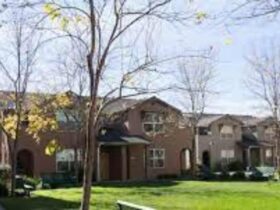Living above a commercial property in USA can be an attractive proposition. Although it may be legal and safe, living above a shop can be a costly proposition. Here are some important things you should know before living above a commercial property. You should know that living in a commercial property requires special permits and you should be aware of Zoning regulations.
Legality of living on a commercial property
For some people, living above a shop can be an attractive proposition, but living in such a situation is not always safe or legal. It’s also risky, both financially and personally. For this reason, it is essential to understand the legality of living on a commercial property.
Whether you can live on a commercial property depends on the zoning of the property. If it’s a non-residential or mixed-use property, you’ll need the consent of the URA. If it’s a residential zone, you may be able to live on the property without violating the rules. However, if you don’t have the necessary permits, it’s best to find another place to live.
In general, zoning laws determine what’s legal to build in a city, town, or county. Commercial properties are usually zoned for business and cannot be used as a residence. This means that you can’t live on a commercial property unless you have a permit or live in an apartment.
Zoning regulations
If you’re considering living in a commercial property, it’s important to understand the rules. Many states have separate zoning regulations for commercial and residential properties. These laws may also include occupancy limits and restrictions. If you’re planning to live in a commercial property, check with your city’s planning office before you buy it.
Zoning regulations vary from one city to the next and often target specific sectors of the city. In most places, the regulations can be quite complex. For example, in Texas, alcohol establishments must be located 300 feet away from churches and schools. This means that living in a commercial property is not always a good idea.
Zoning regulations are the laws that govern how buildings can be used. They help communities manage buildings and prevent new developments from compromising existing neighborhoods. For example, zoning laws may prohibit the construction of a steel manufacturing plant in a residential neighborhood.
Cost of living on a commercial property
Cost of living is a significant concern for commercial property owners. Rising inflation has caused rent costs to increase, which can be a serious challenge for businesses on a tight budget. As a result, businesses may be forced to move to less expensive areas or downsize operations. In this article, we will examine some of the key factors that can influence the cost of living on a commercial property in the USA.
Cost of buying a commercial property
There are many factors to consider when it comes to cost when buying commercial property. The first is the type of property. Commercial properties are not like single-family homes; their costs are higher. Also, it may be harder to obtain financing for a commercial property. In addition, it is difficult to find comparable properties for commercial properties.
Another factor that affects the cost of buying a commercial property is the condition of the property. The property must be priced below market value for its condition, have enough net operating income to cover mortgage payments, and have strong repositioning upside. This may come in the form of rents below market value, occupancy levels lower than market level, or the need to make relatively inexpensive operational changes.
A property appraisal can cost as little as $500 to $5,000 depending on size and condition. A property inspection is a good idea, as it can identify problems that may need fixing before a sale. Getting an inspection can also help sellers set a more accurate asking price, which will save time during negotiations. Buyers may also order an inspection of the property before purchasing it. This inspection is usually done at the buyer’s expense.





